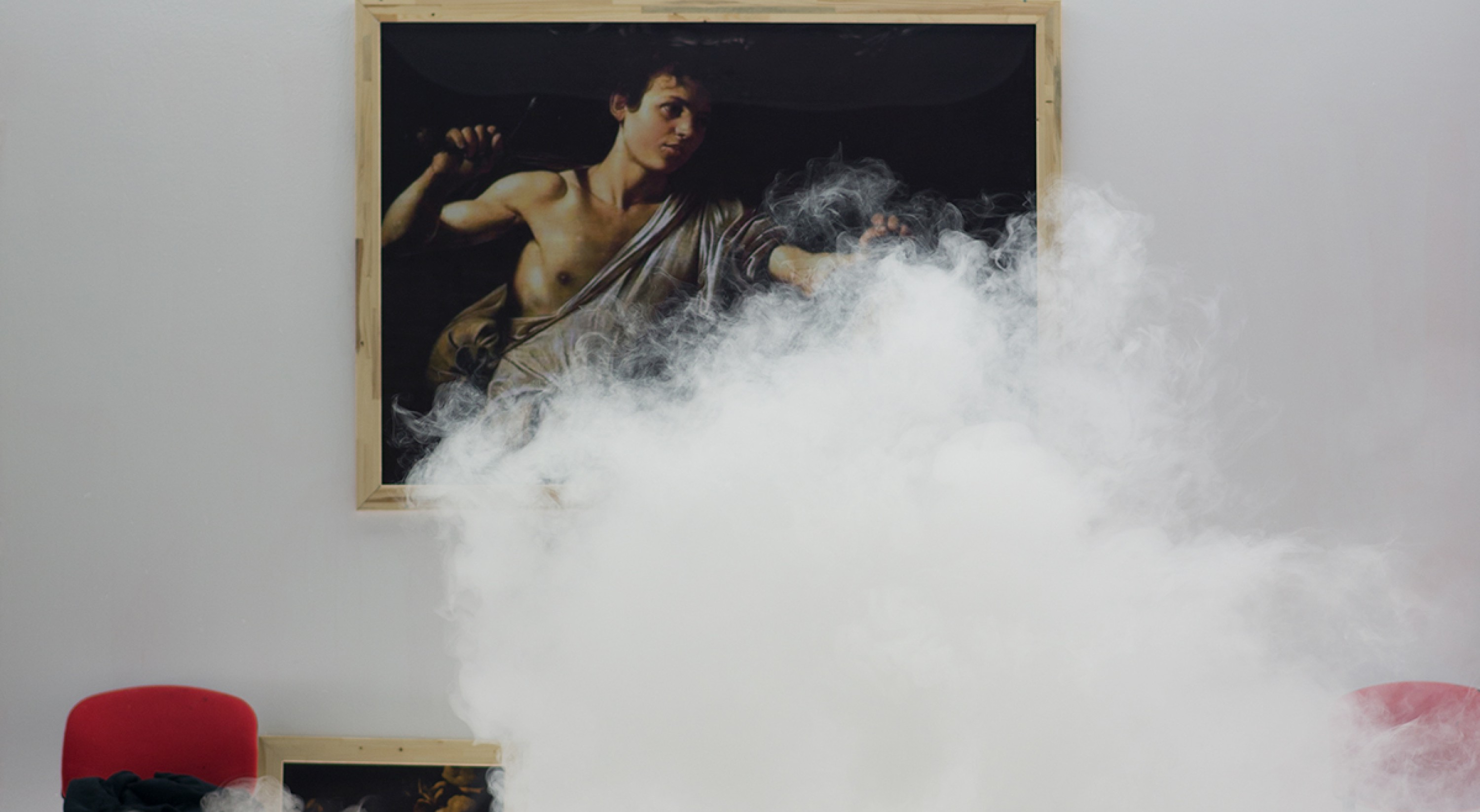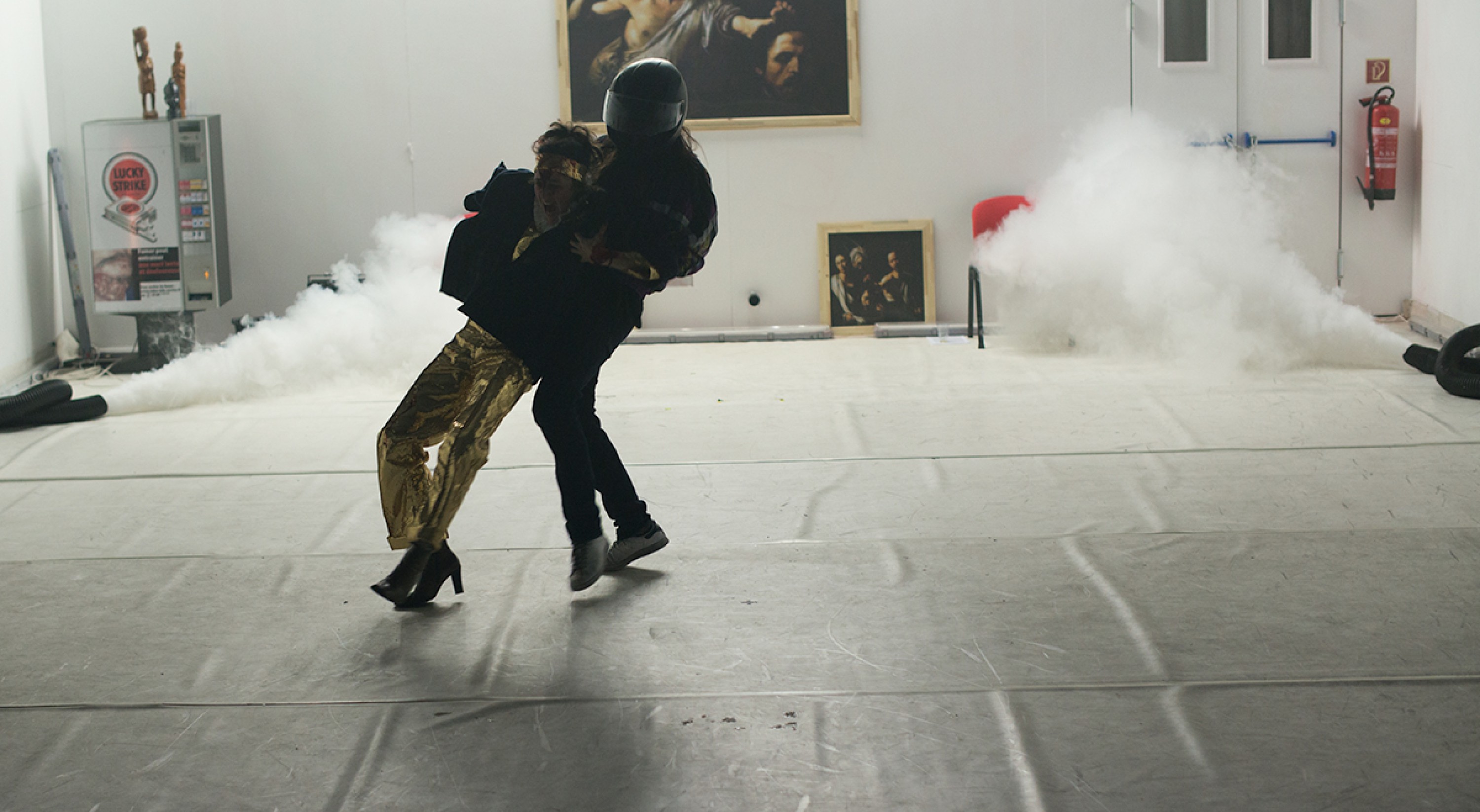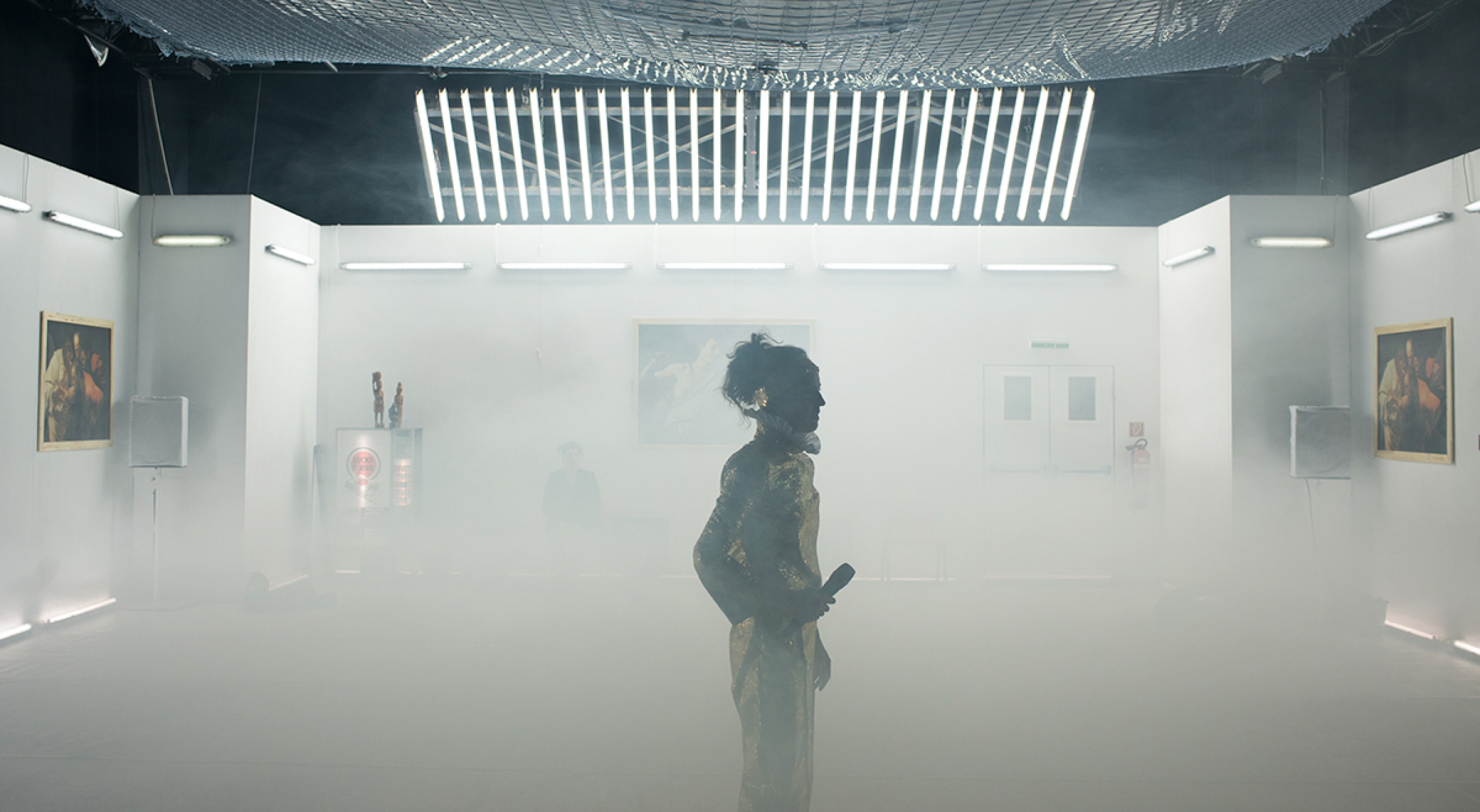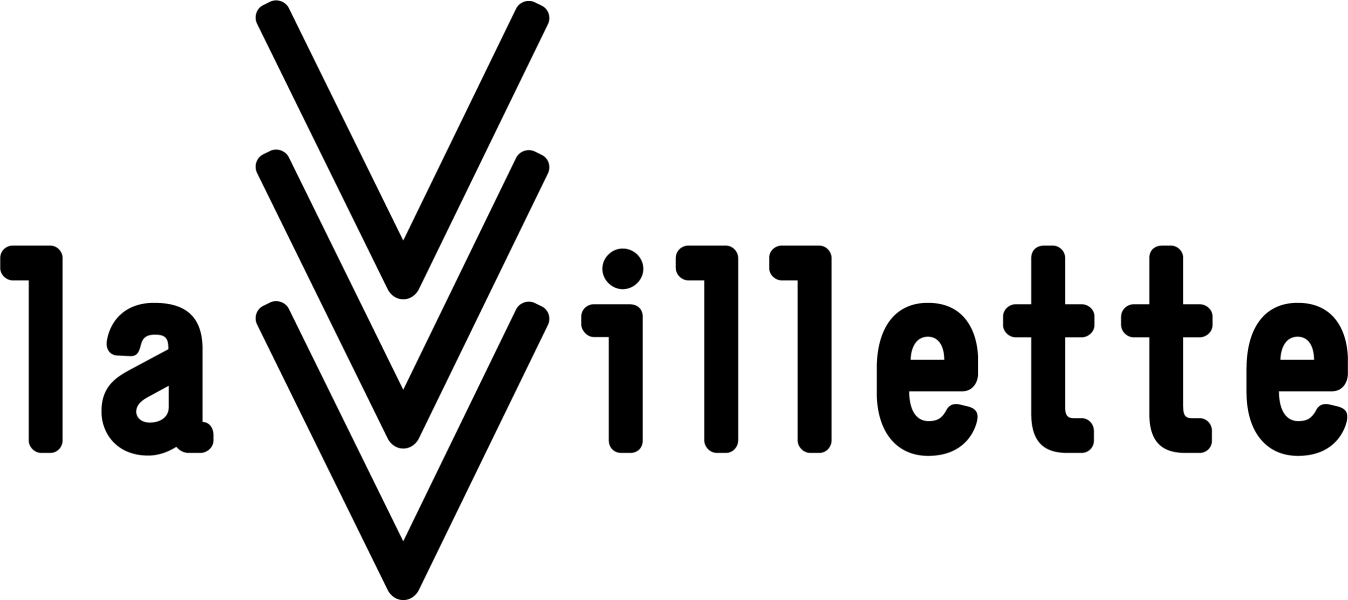Vincent Macaigne
En manque
decemberdec 14 – 22
Written, directed and set design by Vincent Macaigne
With Thibaut Evrard, Liza Lapert, Clara Lama-Schmit, Sofia Teillet, and the extras and their children
Set design collaboration, Julien Peissel
Lighting, Jean Huleu
Props, Lucie Basclet
Sound, Jonathan Cesaroni
Voices, Matthieu Jaccard
Set construction, Ateliers du Théâtre de Vidy
Stage management, Sébastien Mathé
Trainee director, Salou Sadras
Administration Cie Friche 22.66, AlterMachine, Camille Hakim Hashemi, and Elisbeth Le Coënt
Produced by Théâtre de Vidy, Lausanne and Compagnie Friche 22.66 // Co-produced by TANDEM Scène nationale (Arras-Douai) ; Holland Festival (Amsterdam) ; Théâtre de la Ville-Paris ; and La Villette (Paris) // In association with La Villette (Paris) ; and Théâtre de la Ville-Paris // With the artistic participation of Jeune théâtre national // First performed on the 13th December 2016 at Théâtre de Vidy (Lausanne)
In partnership with France Inter
An extremely wealthy female art collector opens a foundation containing every single piece of Western art. This is the starting point which Vincent Macaigne uses to confront his childhood dreams with his own contradictions as an adult. Torn between rebellion and resignation, this show looks at a certain idea of art.
Today, repetition, in the both the Kierkegaardian sense of the word and also in Beckett’s “fail better” dictum, would appear to be at the heart of Vincent Macaigne’s thoughts on theatre. In 2016, prior to Je suis un pays, there was En manque. As a show, it refers back to one of the first texts he set about staging at the start of his career. Having gathered together all the works of Western art, the immensely wealthy and thoroughly depressed Madame Burini decides to give mere mortals the chance to enjoy them. She comes down from her mountain, and promptly opens a foundation by the side of a lake... in which the works on display are hidden behind Caravaggio reproductions! In reality, this starting “pitch” is the continuously moving matter which the director uses as the basis to reactivate the stage every evening. With his customary brand of grinding humour and exuberance, he confronts his own dreams, and those of our own, with reality. It leads to a celebration of the death of a certain idea of art, of a distant desire to change the world, and of the fanciful idea of an accord between those “above” and those “below”. En manque, and the delightfully contagious difficulty of living it brings with it, resembles a sort of joyful apocalypse, of the tribal, gutsy, and hallucinatory kind - providing the artist’s self image in the way he looks upon the world. “The purpose of art is to hear the world”, as he once said. An idealist and nihilist in equal measure, Macaigne’s trademark theatre is justly provocative.
In the same place



